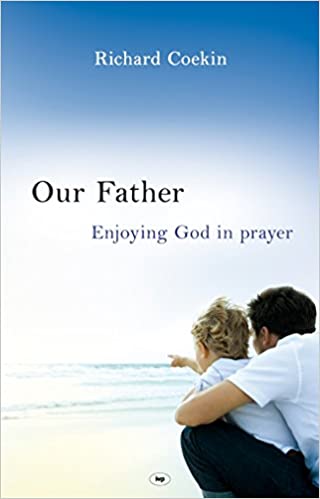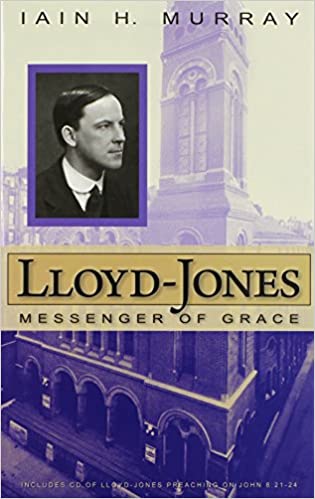If your phone rings in the middle of the night, you don’t expect good news. With dulled senses and some foreboding, you lift the phone expecting the worst. But the best good news that ever came did so in the night.
An angel sent by God appeared in the night to shepherds in Israel – on the hills near Bethlehem. He said, ‘Do not be afraid … I bring you good tidings of great joy which will be to all people. For there is born to you this day in the city of David a Saviour, who is Christ the Lord’ (Luke 2:10-11).
Amazingly, God had entered this sad world in the person of his eternal Son – to bring salvation from sin, judgement and despair.
Shopping mall message
You may even hear this news in a shopping mall this Christmas! Perhaps a local choir or children collecting for some charity will sing:
While shepherds watched their flocks by night,
all seated on the ground,
The angel of the Lord came down
and glory shone around.
‘Fear not’, said he, for mighty dread
had seized their troubled mind;
‘Glad tidings of great joy I bring
to you and all mankind.’
The message came in the night – not a good time for shepherds. Sheep rustlers operated at night, and wild animals such as lions and bears prowled the countryside seeking prey. So, while others slept, the shepherds were watching – alert to the dangers of the night, and enduring the intense cold which often follows nightfall in those parts.
Why the night?
Have you ever wondered why ‘the good tidings’ from heaven came in the night?Does it have any significance? ‘Well, Jesus was born in the night!’ you might say. True, but was there something more to it than that? Was the time of his birth a chance circumstance?
There was nothing fortuitous about the birth of Jesus. In the sovereign purpose of God, its exact place, the precise details and the special timing had all been planned and prophesied beforehand.
The Bible says, ‘When the fulness of time had come, God sent forth his Son’ (Galatians 4:4). The ‘fulness of time’ means that the circumstances were just right for the spread of the Christian gospel.
Roman rule brought political stability. Roman roads made for ease of travel. The universal Greek trade language made it easy to communicate. And the dispersal of the Jews provided a seed-bed for the gospel among all nations.
God of the small pieces
Yes, Jesus was certainly born at an appropriate time in world history. But God is not only the God of the big-time pieces, he is also the God of the small pieces. Jesus was born in the night, and the good news came in the night, through the purpose and timing of almighty God.
So, why did it all happen at night? The answer must surely be that there was no more fitting time for the good news to come. For Jesus had come ‘to give light to those who sit in darkness and the shadow of death’ (Luke 1:79).
‘Day’ and ‘night’ are used in the Bible to describe people’s spiritual state – they are either ‘of the day’, having a true knowledge of the living God; or they are ‘of the night’, being ignorant of God.
The apostle Paul wrote to some who had become Christians, ‘You are all sons of light and sons of the day. We are not of the night nor of darkness’ (1 Thessalonians 5:5).
Without Jesus Christ we are ‘in darkness’ and ‘of the night’. Night, therefore, describes the condition of the world – blind to God, having no hope, and fearful of the unknown.
Spiritual need
In this symbolic sense, the good news from heaven always comes to people ‘in the night’.Humanly we are at our lowest in the night. Our fears, our troubled thoughts, our feelings of inadequacy – these always seem to surface in the night.
God wants us to know that the good news of Jesus Christ meets us at the precise point of our need – in our spiritual darkness, our weakness, and our ignorance of God. It comes to us when we are at our lowest ebb – confused and fearful and crying out for help.
Make no mistake about this; the message of mercy and forgiveness through Jesus Christ is sent to men and women in the night.
Don’t be afraid, said the angel, for I bring you good tidings of great joy … For there is born to you this day … a Saviour, who is Christ the Lord (Luke 2:10-11). The message is for the guilt-ridden, the despairing, and the no-hopers of this world – for all who realise that they are floundering in spiritual darkness.
Hope for the future
If we receive it gladly, the good news from heaven will turn our night into day. To those who had become Christians in Ephesus, Paul could write: ‘You were once darkness, but now you are light in the Lord’.
They had come to know the living God. They weren’t groping about in a mental fog any more. You too can find forgiveness for all your sins, when you cry to God for mercy and put your trust in Jesus Christ.
Whatever disappointments and disasters you have experienced in life, you will be given hope for the future and a love for God. And you will begin to live for him and for ‘the world to come’. This is what happens when the light comes!
Nothing could be more appropriate – the good news of the Son of God came in the night. In the darkness of the night, the angel announced that light had come into the world.
So let us welcome and respond to the Christmas message. Let us call out to Jesus, ‘the light of the world’, to give us light in our own darkness.














